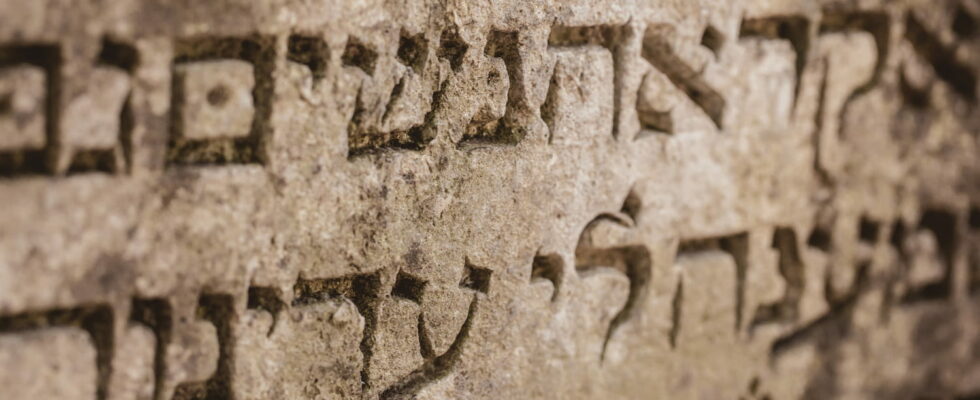A 1,500-year-old treasure has been discovered in Israel. He had been in front of everyone for more than thirty years, no one had seen him.
Near a railway line, a marble slab was discovered during excavations along the southern coast of Israel in 1913. Without further expertise, it was recycled as a paving slab in a house neighbor. But its new owners did not know that it was actually the oldest tablet of the Ten Commandments. Its inscriptions written in paleo-Hebrew were trampled on for 30 years by countless people, unaware of its value.
Weakened by wear, the inscriptions on this 60 centimeter long and 52 kilogram stone are no longer entirely clear in places. Twenty lines of text appear but only nine of the ten commandments are legible. Indeed, the commandment “You shall not take the name of the Lord in vain” is now absent from the tablet.

A shame for this 1500 year old piece of history, dating from the Roman-Byzantine era according to archaeologists. “This remarkable tablet is not only a critically important historical artifact, but also a tangible link to the beliefs that helped shape Western civilization,” said Richard Austin, global head of books and manuscripts at Sotheby’sthe famous auction house. The latter describes this antiquity as “a cornerstone of law and morality”.
Estimated at just under two million euros, it was sold at auction on December 18 in New York, at Sotheby’s after an exhibition to the public. In a press release, the company specifies that this sale would probably never have been possible if the slab had not been purchased by a scholar in 1943. For good reason, upon realizing its value, he had decided to make it appraise. According to BFMTVthe last auction of this importance dates from May 2023 with the sale of an ancient Hebrew Bible for the modest sum of $38 million.
